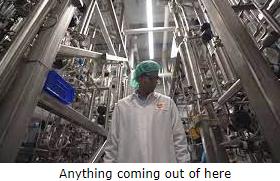 The E.U. Food Safety Authority has yet to make a decision on the acceptability of cell-cultured meat. There is clear division among nations of the E.U. with opposition based on narrow concerns supporting existing agricultural systems contrasted with environmental considerations. Twelve E.U. nations consider cultivated meat to “represent a threat to primary farm-based approaches and genuine food production methods that are the heart of the European farming model.”
The E.U. Food Safety Authority has yet to make a decision on the acceptability of cell-cultured meat. There is clear division among nations of the E.U. with opposition based on narrow concerns supporting existing agricultural systems contrasted with environmental considerations. Twelve E.U. nations consider cultivated meat to “represent a threat to primary farm-based approaches and genuine food production methods that are the heart of the European farming model.”
This approach is exemplified by Italy and France among other nations that have enacted legislation banning the sale of cell-cultivated meat although of questionable acceptance by the E.U. Some nations including Germany, the Netherlands, Spain and the U.K. have promoted cell-cultivated meat based on environmental motives and promotion of technology.
The entire question of whether cell-cultivated meat should be banned or promoted may be moot. There is growing evidence that consumers may sample cell-cultivated meat provided it is available at a price that is competitive compared to the real product but there is evidence that potential buyers view the entire technology with suspicion. The second and most important restraint to extensive production and consumption of cell-cultivated meat is the fact that no company has  successfully transitioned from pilot scale to commercial production using bioreactors. The likelihood of companies producing sufficient quantities of product with the organoleptic qualities of pork, beef, chicken and lamb is unlikely even in the intermediate term. Cell-cultivated meat is not going to reverse deforestation to produce beef or reduce greenhouse gas emissions from animal waste despite the hype. Currently broilers and eggs have the smallest environmental footprint among animal products and contribute to the availability of inexpensive and nutritious protein.
successfully transitioned from pilot scale to commercial production using bioreactors. The likelihood of companies producing sufficient quantities of product with the organoleptic qualities of pork, beef, chicken and lamb is unlikely even in the intermediate term. Cell-cultivated meat is not going to reverse deforestation to produce beef or reduce greenhouse gas emissions from animal waste despite the hype. Currently broilers and eggs have the smallest environmental footprint among animal products and contribute to the availability of inexpensive and nutritious protein.